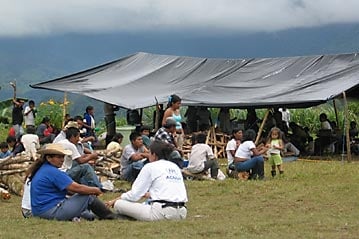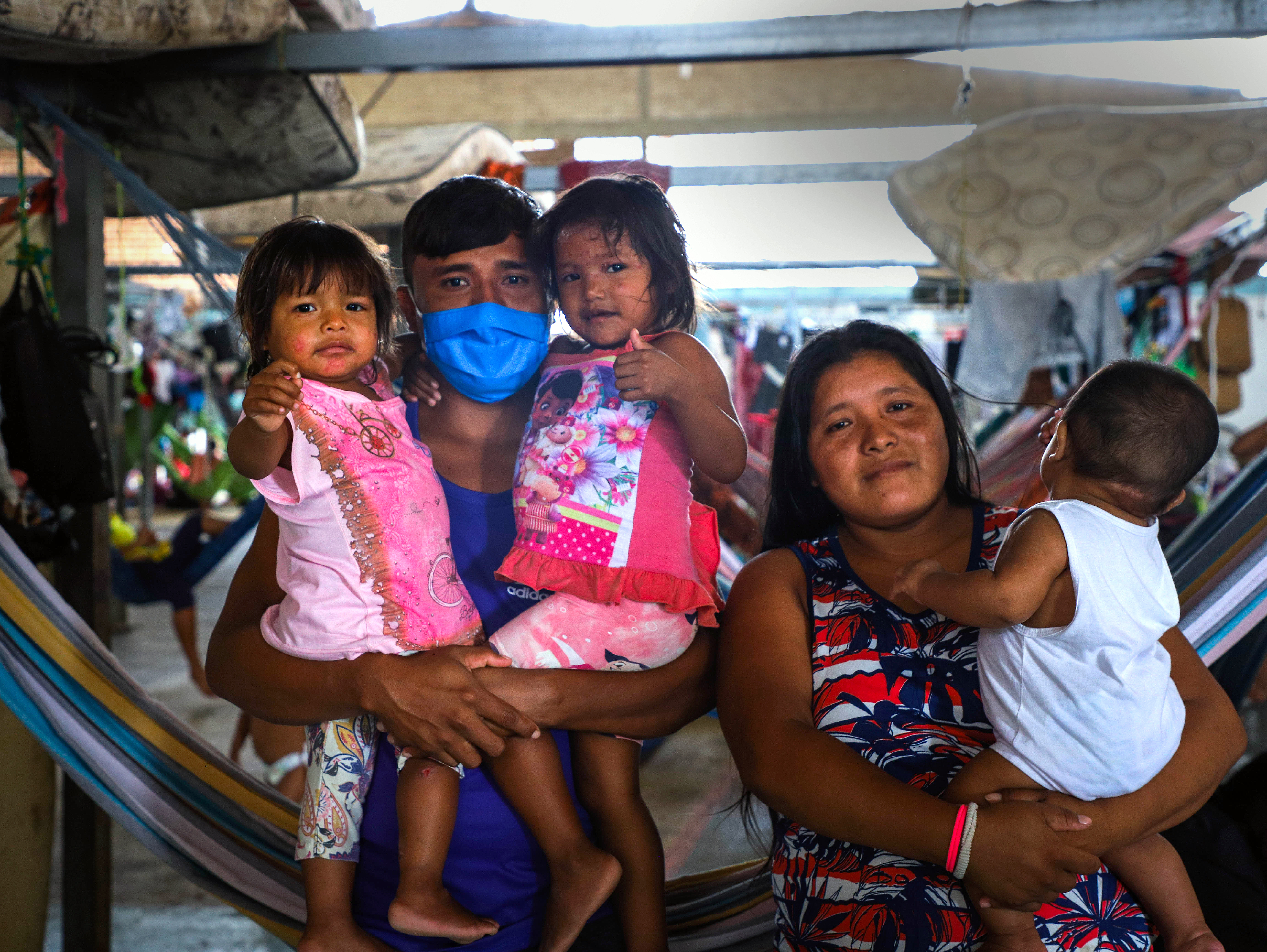Little for Colombia's ethnic Awá to celebrate on World Indigenous Day
Little for Colombia's ethnic Awá to celebrate on World Indigenous Day

RICAURTE, Colombia, August 8 (UNHCR) - On Wednesday, the United Nations will mark World Indigenous Day. But in Colombia, where armed conflict is putting enormous pressure on the survival of indigenous culture, it will be a day of worried reflection for the more than 80 indigenous groups around the country.
In south-west Colombia's Nariño department, the forced displacement of hundreds of Awá indigenous people in recent weeks is the latest example of the violence that threatens indigenous communities. Most of the Awá settlements in reservations around Ricaurte - located near the border with Ecuador - have been empty since mid-July.
Some 1,700 Awá villagers have fled to Ricaurte and the town of Altaquer to escape fighting between an irregular armed group and the Colombian army. Hundreds more have left their homes but have stayed inside the reservations because they do not want to stray far from their settlements and livelihood.
In some places, people have gathered in schools. In the reservation of Magüí-Payán, people who took refuge in a school had to wait more than a week for food and humanitarian assistance to arrive. Some people were prevented from moving because of the intensity of the conflict - a blind 73-year-old lived for 10 days on bananas and water before his family got him out.
The Awá organisation, Camawari, estimates that some 3,500 people are in danger within the combat zone. The Awá people were just starting to recover from another displacement caused by armed conflict in mid-2005.
The situation for the displaced Awá is difficult. In Ricaurte, where more than 1,100 of them have gathered, the local authorities have provided just three shelters, as well as food and limited medical assistance. They lack sufficient facilities - as of the end of last week, there were just seven showers.
The conflict forcing the latest displacement is just the latest eruption of violence that the Awá have had to live with and which is progressively crippling their unique culture. "Aune iskuarumtu" (We are Afraid), say those who speak awapit. But most of the Awá these days cannot even speak their native language because their teachers have become prime targets in the violence.
The Awá had managed to steer clear of the violence in Colombia until the early 1990s, when the first irregular armed group arrived on their lands. Camawari has registered the killings of 45 Awá people.since 1999, when the violence started to get worse. Most were murdered by members of irregular armed groups, but state officials are suspected of involvement in some cases.
The most recent case - the murder of a teacher on June 29 - prompted large numbers of the Awá to protest to the leaders of the armed group they considered responsible. Awá leaders feel the recent clashes and displacement pose a major threat. "Our very existence as a people is threatened if we can't live normal lives in our own territory," said one of the leaders, Eder Burgos, at a public meeting.
The future looks more and more uncertain, but UNHCR supports groups like Camawari in their struggle to preserve the cultures of indigenous people from outside assault. The refuge agency also backs efforts to protect the civil rights of the Awá and to provide them with physical shelter in times of need.
"We need more attention from the state and from Colombian society to the drama of these people, who need to receive humanitarian assistance - namely medical assistance and adequate shelters - but also, and above all, protection," said Roberto Meier, UNHCR representative in Colombia, during a recent visit to the displaced Awá communities in Nariño.
Meier talked with local and regional authorities about ways to improve the humanitarian response. He also urged the combatants not to drag the indigenous people into their war. He warned that a possible return - requested by the indigenous people - should only take place when conditions were in place for them to live their life in dignity and safety.
"We see that our culture is dying, our culture is disappearing," warned Eder Burgo. "The solution is not a shelter with good mattresses and good food. The solution is to live in harmony on our territories," he added.
By Gustavo Valdivieso in Ricaurte, Colombia








